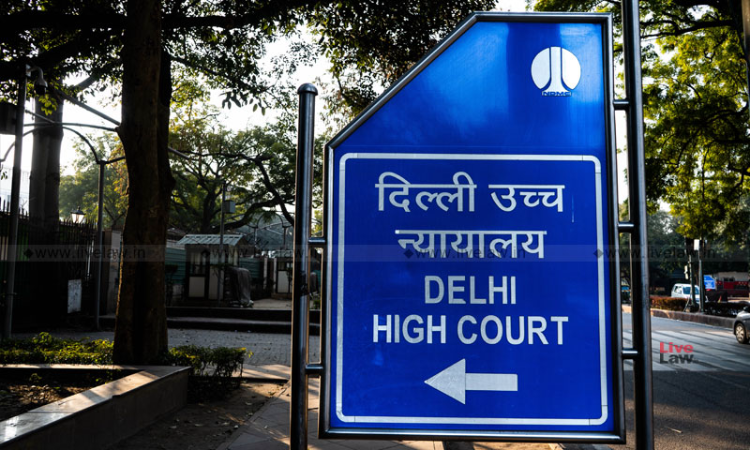- Home
- /
- High Courts
- /
- Delhi High Court
- /
- Widowed Daughter-In-Law Entitled To...
Widowed Daughter-In-Law Entitled To Maintenance From Deceased Father-In-Law's Coparcenary Property, Not Personal Property: Delhi High Court
Nupur Thapliyal
20 Aug 2025 3:40 PM IST
The Delhi High Court has ruled that a daughter-in-law, who becomes a widow after the demise of her father-in-law, is entitled to claim maintenance from the estate derived from his coparcenary property.A division bench comprising Justice Anil Kshetarpal and Justice Harish Vaidyanathan Shankar said that even if the father-in-law owns significant separate or self-acquired assets, the duty...
The Delhi High Court has ruled that a daughter-in-law, who becomes a widow after the demise of her father-in-law, is entitled to claim maintenance from the estate derived from his coparcenary property.
A division bench comprising Justice Anil Kshetarpal and Justice Harish Vaidyanathan Shankar said that even if the father-in-law owns significant separate or self-acquired assets, the duty to maintain arises only from the coparcenary property which would subsequently form a part of his estate after his death.
The Court referred to Section 21(vii) of the Hindu Adoption and Maintenance Act, 1956, and said that the provision provides that a widow is entitled to seek maintenance from the estate of her father-in-law.
The Bench said that Clause 7(i) of the provisions defines the scope of the term “dependants” for the purpose of maintenance and that it provides that “dependants mean the widow of the son of the deceased, provided and to the extent that she is unable to obtain maintenance from her husband's estate, or from her son or daughter or their estate, also from her father-in-law's estate”.
“The language used in this clause implies that a widowed daughter-in-law is entitled to claim maintenance from her father-in-law's estate, contingent upon her status as a dependant, who is unable to secure maintenance from her husband's estate, or from her own or her children's estate,” the Court said.
It added that the liability arising out of the said clause is not merely confined to the father-in-law rather it survives as an enforceable claim against his estate. Therefore, such maintenance can be awarded not only against the father-in-law but also from the estate of the father-in-law, it said.
The Court was dealing with a plea challenging orders passed by the single judge and a family court.
The appeal was filed by a daughter in law who became a widow in March 2023 whereas the father in law pre deceased his son, having passed away in December 2021. She challenged dismissal of her plea filed under Sections 19, 21, 22 and 23 of the Hindu Adoption and Maintenance Act, 1956.
Disposing of the plea, the Court said that Section 19(1) of the HAMA confers upon a widowed daughter-in-law a statutory right to claim maintenance from her father-in-law, thereby recognising his legal obligation in form of a liability to provide for her sustenance in event of the demise of her husband.
However, it added that such statutory right of the widowed daughter-in-law creating a legal obligation upon the father-in-law, poses a significant restriction to the liability conferred upon the father-in-law.
“The provision limits the liability of the father-in-law only to the extent of his coparcenary property. While making it abundantly clear that if the father-in-law does not possess any coparcenary property and maintenance is sought from his self-acquired property or any other assets that do not qualify as a coparcenary property, the widowed daughter-in-law will have no enforceable right,” it said.
Further, the Court said that HAMA is quintessentially a social welfare legislation, enacted with an intention to infuse traditional norms of a Hindu Society with principles of equity, fairness and family protection.
“Therefore, the provisions herein shall be construed in such a manner that advances the right of widowed daughter-in-law. Moreover, to ensure that a destitute widowed daughter-in-law is not deprived of maintenance, especially in circumstances where her father-in-law has left behind an estate, the words in Section 19(1) of the HAMA cannot be construed narrowly,” the Court said.
It added: “Such restrictive interpretation would fall short of the parliamentary intent behind the enactment of the statute which was to ensure the protection of those who lack other means of support.”
Title: GEETA SHARMA v. KANCHANA RAI & ORS
Citation: 2025 LiveLaw (Del) 996



